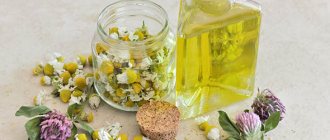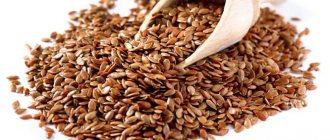Inflammation of the gastric mucosa can bother the patient for a long time. Official medicine suggests taking enveloping agents that create a protective film against rough food, medications that regulate the secretion of gastric juice and antispasmodics. However, the instructions for the use of drugs state the exact period of possible use of a particular drug, after which complications and side effects appear that worsen the functioning of the liver, kidneys and other internal organs.
Dietary nutrition is also indicated for patients with gastritis. But it is extremely difficult to adhere to it all the time, especially if a person is used to not denying himself anything. An active lifestyle does not always allow you to eat up to 6 times a day, and only what is possible with a sick stomach; you often have to fill your stomach to satisfy your hunger with what is currently at hand.
It turns out to be a vicious circle that is difficult to break.
Meanwhile, gastritis literally poisons life, if it is not treated, it can develop into a peptic ulcer of the duodenum or stomach, and this is a much more serious diagnosis, it is not to be trifled with.
Therefore, chronic patients are increasingly thinking about folk remedies in the treatment of gastritis. Even skeptics, having tried some recipes based on natural herbal ingredients, come to the conclusion that this course of therapy is in no way inferior to drug treatment. Moreover, it is completely safe and allows you to take a break from taking pills.
Pharmacological properties
St. John's wort is an effective remedy for various diseases due to its rich composition:
- derivatives of caffeic acid and anthracene;
- flavonoids;
- xanthones;
- essential oils;
- tannins;
- oligomers.
Due to its composition, St. John's wort is used as an anti-inflammatory, sedative, and anxiolytic agent. It also exhibits a stimulating effect on the gastrointestinal tract and blood circulation.
Inflammatory foci are eliminated by St. John's wort due to the content of flavonoids, and the antimicrobial activity is due to hyperforin. St. John's wort is effective against penicillin-resistant strains of coccal bacteria.
St. John's wort (St. John's wort)pierced-leaved, St. John's wort) -HYPERICUM PERFORATUM L.
Sem. St. John's wort - Hypericaceae (Guttifarae)
DESCRIPTION. A perennial herbaceous plant with thin, branched stems at the top, 30-80 cm high. The root is taproot, strongly branched. The stems are bare, smooth, with two ribs. Leaves are opposite, sessile, entire, slightly curled. Flowers are collected on the tops of stems and their branches in corymbose-paniculate inflorescences. The calyx is green, remaining with the fruit, sepals with sparse black dots. The corolla is golden yellow, five-petalled; The petals are elliptical, obliquely cut at the top, with black dots along the edges. Stamens numerous, in three bunches; pestle with three columns. The fruit is an oblong-ovoid, three-locular, multi-seeded capsule, opening with three valves. The seeds are very small, oblong, dark brown. Blooms in June-August; the fruits ripen in September.
RAW MATERIALS. In treatment, dried St. John's wort herb is used, which is the leafy tops of stems (up to 30 cm in length) with leaves, flowers, buds and unripe fruits. The leaves are oblong-oval, green, with numerous translucent, light dots scattered throughout the leaf blade and black dots along the edge. The flowers are bright yellow, the petals are translucent over the entire surface, with black dots along the edges. In small quantities, fruit boxes are found in the raw materials. The smell of the raw materials is balsamic, the taste is tart and bitter. The finished raw material must contain at least 25% extractive substances extracted with 40% alcohol, stems and side branches no more than 50%, moisture no more than 13%, particles finer than 2 mm no more than 10%.
DISTRIBUTION AND PROCESSING. More often found in small spots along the edges of forests, in open forest clearings, in meadows and among thickets of bushes. Occasionally it grows as a weed on the boundaries and along the edges of fields.
St. John's wort is harvested during its flowering phase, before the fruit appears. Using knives or sickles, cut off the flowering tops without the rough bases of the stems. Plants should not be uprooted. Dry grass in attics and under sheds. Shelf life - up to 3 years.
CHEMICAL COMPOSITION. Flavonoids have been isolated from the herb St. John's wort: hyperoside, rutin, quercitrin, isoquercitrin and quercetin. The grass is rich in fluorescent dyes: hypericin, pseudohypericin, dianthrone derivatives, etc. It also contains tannins, carotene, essential oil (which includes a-pinene, azulene), resins, ascorbic, nicotinic acids, vitamins C, PP.
APPLICATION. St. John's wort has diuretic, anti-inflammatory, wound-healing, photosensitizing and antimicrobial properties.
St. John's wort preparations are recommended for diseases of the gastrointestinal tract (diarrhea, gastroenteritis, peptic ulcer of the stomach and duodenum), diseases of the liver and gallbladder, and kidneys. The plant is used to reduce the tone of the cardiovascular system, as a hemostatic for uterine bleeding, and for bleeding gums.
St. John's wort polyphenols have a pronounced antimicrobial effect on many microorganisms.
In folk medicine, crushed herbs infused with vegetable oil and mixed with turpentine are rubbed on joints affected by gout and rheumatism.
St. John's wort infusion is an effective means of reducing the amount of sugar.
RECIPES
Infusion:
Pour 10 g of dry herb into 1 glass of boiling water, leave for 30 minutes, strain. Take 1-2 tbsp. spoons or 1/4 cup per day 30 minutes before meals for diarrhea.
Tincture:
Pour 20 g of dry herb into 0.5 liters of 40% alcohol, leave for 8 days, strain. Take 20-30 drops with water 3 times a day before meals for dysentery, stomach and liver diseases.
Tea:
2 tbsp. spoons of chopped St. John's wort herb with flowers and leaves, pour 1 liter of water, bring to a boil, strain and drink like tea with honey.
Decoction:
1 tbsp. boil a spoonful of crushed St. John's wort herb for approximately 15 minutes in one glass of water (daily dose); drink in sips.
Tincture
or
extract
, take 40-50 drops orally 3 times a day after meals, externally - for rinsing - 30-40 drops in half a glass of water.
Ointment
can be prepared by mixing 1 hour of St. John's wort tincture with 4 hours of butter.
Externally against burns, to accelerate the healing of wounds and other skin lesions, use St. John's wort oil, prepared as follows: pour 20 g of fresh flowers into 200 g of linseed or sunflower oil, leave to infuse for 3 weeks, shaking the vessel from time to time. The resulting oil extract has a reddish color.
For liver diseases, it is good to use the following mixture: 20 g of St. John's wort herb, 30 g of buckthorn bark. 4 tbsp. spoons of the mixture, brew 1 liter of boiling water, leave for 10 minutes. This is a daily dose that should be taken in 5 doses.
Infusion and tincture of the herb St. John's wort (Tinctura Hyperici) is taken orally for intestinal catarrh, externally for burns, for rinsing the mouth and lubricating the gums for stomatitis. Oil extract from the herb is used as a wound healing agent. In addition, a complex polyphenolic drug, Novoimaninum, was obtained, which is used externally for infectious wounds, burns, trophic ulcers and gynecological diseases. The drug peflavit (Peflavit) from the herb St. John's wort, containing catechins, has P-vitamin activity. St. John's wort herb is used in the distillery industry.
How it helps with gastritis
For gastritis, you can drink St. John's wort either in its pure form or as part of complex herbal preparations..
For various forms of gastritis, the plant can help:
- for atrophic gastritis – eliminates foci of inflammation, promotes the activation of digestive activity;
- for hyperacid gastritis – reduces the aggressive effect of hydrochloric acid on inflamed mucous membranes;
- for erosive gastritis – increases the protective functions of the mucous membranes, provokes the production of mucus with bicarbonates;
- for hypoacid gastritis – stimulates the functioning of the stomach and intestines, improves motility and peristalsis.
St. John's wort has a healing effect both with high and low acidity. All this is due to its ability to reduce the severity of inflammatory processes, and therefore eliminate pain, discomfort and other symptoms of gastritis.
How to choose the right herbs to treat gastritis
In order for the treatment to be effective and bring a positive result, it is first necessary to determine the format of gastritis. Some plants are able to cope with increased acidity of gastric juice, while others are suitable for alleviating the condition of decreased secretion. Determining acidity at home is very easy:
- If, after you have eaten a tangerine, a sour apple or a tomato, you feel pain in the epigastrium and other unpleasant symptoms, then you have high acidity.
- If you are visited by a frequent feeling of hunger and, in the absence of subsequent nutrition, nausea appears, pulling in the navel area, then we are also talking about increased acidity.
- I suffer from heartburn - acidity levels again exceed normal values.
Why should you start with treating gastric acid secretion? Reduced secretion has its own destructive mechanism for the gastrointestinal tract:
- if food does not enter the stomach, gastric juice begins to digest the gastric mucosa, causing it to become inflamed;
- if the integrity of the mucous membrane is compromised, any food, especially spicy, fried and smoked food, leads to further injury, which increases the risk of ulcers.
If we talk about reduced secretion of gastric juice, the process happens the other way around - the secretory function leaves much to be desired, so folk remedies are primarily designed to activate the strength of the diseased organ, relieve the patient from diarrhea, rumbling in the stomach and aching pain.
Mode of application
A gastroenterologist should advise you on how to properly take St. John's wort in one form or another. It will take into account the individual characteristics of the disease, response to therapy and concomitant pathologies.
In general, treatment with St. John's wort is prescribed for gastritis in the form of water decoctions and teas.
To prepare tea:
- two filter bags are placed in a glass cup;
- pour half a glass of boiling water;
- cover with a tight lid;
- stand for 15 minutes;
- Squeeze out the bags periodically.
If during the extraction process the amount of tea has decreased in volume, it should be brought to the original volume with clean boiled water.
Children over twelve years of age and adults are prescribed half a glass of this tea in the morning and evening, half an hour before meals. The course of admission is no longer than twenty days. The doctor may prescribe St. John's wort in the form of an infusion, but in this case the selection of the dosage is strictly individual.
Application of St. John's wort
In women, St. John's wort is used as an additional remedy in the treatment of gynecological pathologies. It relieves PMS and pain during menstruation, normalizes hormone levels during menopause. Helps strengthen the female body during periods of stress. Widely used in cosmetology, eliminating signs of aging, helping to smooth out wrinkles and improve complexion.
In men, it helps relieve tension and stress, reduces the risk of vascular and heart diseases, stimulates immunity and endurance.
In children, St. John's wort is used with extreme caution and only after permission from a doctor. It can strengthen the immune system, eliminate skin diseases, relieve coughs and calm the nervous system.
Good to know
Hawthorn decoctions and infusions: in what cases will they help you?
Alcohol infusion
It is strongly recommended to treat gastritis with this infusion only after consultation with a gastroenterologist. The alcohol component can irritate inflamed mucous membranes even more, causing exacerbation and attacks of pain.
To prepare the infusion, use the following recipe:
- Place 100 grams of dry St. John's wort in a glass jar;
- pour 250 ml of forty-proof vodka;
- close the lid and place in a dark place;
- stir occasionally;
- insist for three to four weeks.
After the specified time, the tincture is filtered several times with a gauze filter. Store in a dark glass container in a place where sunlight does not penetrate.
The infusion is taken once a day, after dinner, a teaspoon. Additionally, you can use enveloping agents recommended by a gastroenterologist.
Infusion on water
The preparation is somewhat different from tea, and the solution itself is more concentrated and rich. It is recommended to treat gastritis with St. John's wort in the form of a water infusion during the period of remission.
To prepare, take a tablespoon of dry collection and pour a glass of boiling water in an enamel or glass container. You cannot use metal containers, as chemical interaction between the components of the infusion and the metal is possible.
Then cover the container with a tight lid and leave for twenty minutes. After this time, the St. John's wort solution is filtered through a gauze filter or strainer. Take a tablespoon three times a day before meals.
This infusion increases the elasticity of blood vessels, stimulates metabolic processes and the functioning of the digestive tract. You can cook in combination with chamomile and lemon balm, taking a tablespoon of herbal mixture per liter of water.
St. John's wort: what are the characteristics of the plant
This raw material is actively used in herbal medicine due to its unique means and special composition, which helps normalize metabolic processes. The plant contains myrcene, a compound that has antimicrobial activity against many dangerous bacteria. Geraniol has a similar effect; it has a bactericidal effect on coccal flora, suppresses the growth of pathogenic intestinal flora and parasites.
Cineole has a positive effect on the functioning of the nervous system; it helps normalize sleep and fights insomnia, including during periods of stress and depression. It also has a general tonic effect and eliminates muscle spasms due to overexertion. Due to the content of hypericin, cell growth is stimulated, which is useful during wound healing and during the recovery period after illness, the same effect helps to prolong youth. Due to the content of plant alkaloids, St. John's wort helps in the fight against neuroses and depressive disorders. The azulene content enhances the positive effect of the herb on the nervous system and accelerates wound healing.
The effects are complemented by the content of saponins, which have a metabolic and diuretic effect, hyperoside with its anti-inflammatory properties and rutin, which protects blood vessels.
The plant contains many vitamins - ascorbic acid, B vitamins, which help normalize metabolic processes. Due to its composition, it is widely used for both oral and external therapy. The plant is used both fresh and dried; it does not lose its healing properties when properly collected and stored.
show more
Oil hood
St. John's wort is effective in the form of an oil extract for erosive gastritis. When using olive or linseed oil, an enveloping effect is ensured, and in combination with the main treatment, erosions heal more actively.
To prepare the hood, you need:
- pour 45 grams of raw material into a glass of vegetable oil;
- cover with a lid and shake;
- insist for three weeks;
- Shake the contents of the container periodically.
You can only infuse in a glass container. When the oil turns scarlet, you need to strain it into another glass container. Take ten drops twice a day on an empty stomach.
The same hood can be used to treat wounds, cuts, and abrasions on the skin. St. John's wort with an oil base heals damage to both the skin and mucous membranes due to erosive gastritis.
Fees for gastritis
St. John's wort for atrophic gastritis and disorders of acidity regulation in the stomach is also taken as part of the preparations. Pharmacies sell ready-made herbal mixtures with St. John's wort, where it is combined with the following combinations of plants for gastritis:
- celandine, chamomile, yarrow;
- nettle, plantain, chamomile;
- chamomile and yarrow;
- blueberry leaves, immortelle, mint, knotweed, centaury.
All of these plants have anti-inflammatory, enveloping, soothing and wound-healing effects, normalize acidity and the production of protective mucus.
Gastritis preparations are prepared and taken according to the instructions from the manufacturer and on the recommendation of the attending physician. The most common option is taking teas and herbal infusions. They successfully replace regular tea in patients with gastritis.
Medicinal properties of St. John's wort
In herbal medicine, St. John's wort is used as a mono-component or as part of preparations. It is typical for a number of medicinal and prophylactic properties used in the complex treatment of a number of diseases.
Due to its multicomponent composition, St. John's wort has a number of useful properties:
Antimicrobial. Taking decoctions or infusions is recommended for microbial infections of various locations. The components of the raw material inhibit the proliferation of bacteria and destroy pathogenic microbes.
Sedative. Due to the high content of B vitamins and additional components, decoctions and infusions calm the nervous system and help fight stress, depression and mental overload.
Wound healing. Due to its ability to enhance tissue regeneration, St. John's wort helps in the treatment of burns and wounds, various skin lesions with erosions. It is used mainly in the form of ointments and lotions.
Painkiller. Decoctions or infusions can help combat pain arising from digestive problems, pathologies of the nervous system and joint damage.
Diuretic and choleretic. Due to the active components in the plant, decoctions or infusions help in removing excess fluid and normalize the flow of bile from the liver.
Antiparasitic. Various herbal remedies with St. John's wort help in the fight against intestinal parasites.
Antispasmodic. By relaxing smooth muscles and normalizing the functioning of the nervous system, herbal remedies with St. John's wort help in the treatment of lesions of the digestive tract accompanied by intestinal spasms.
Expectorant. The components of St. John's wort help in liquefying mucus and stimulating its removal from the lumen of the bronchi. The plant is actively used for respiratory pathologies, acute respiratory viral infections and cough infections.
Plus, St. John's wort has a positive effect on the heart and blood vessels, and also helps in the prevention of rheumatic diseases, stimulates the immune system, and improves overall tone.
St. John's wort can help with abdominal cramps. Photo: pexels/Sora Shimazaki
Adverse reactions and contraindications
The use of any form of St. John's wort for gastritis is prohibited if there are episodes of intolerance to this plant in the medical history. Combinations with monoamine oxidase inhibitors and antihypertensive drugs are prohibited. In pediatrics, use is allowed only from twelve years of age. Treatment with St. John's wort is contraindicated for pregnant and lactating women.
Side effects most often include heaviness in the stomach, constipation, and with long-term use, a bitter taste in the mouth. During treatment, you should not sunbathe, as the skin becomes sensitive to UV light.
Is it worth taking St. John's wort if you have high acidity?
It’s not just possible, but even necessary. St. John's wort is excellent for alleviating the painful condition of a patient suffering from gastritis, even if its form is chronic. The benefits of St. John's wort are that it can be easily combined with other herbs. The collection will allow you to achieve a better healing effect and prolong the period of remission, when the disease does not bother you at all.
Folk recipes described in home remedies using St. John's wort for gastritis with high acidity include the addition of the following plants:
- Chamomile flowers are an excellent antiseptic, relieve inflammation, the component has an amazing aroma, and also reduces pain.
- Rose hips are a storehouse of vitamins for a depleted, sick body. Many will say that rose hips cannot be cooked with high acidity because of the sour taste, this is true, but only if you do not know the secret of cooking, in which you can get rid of the acid and retain the usefulness. By regularly consuming a decoction of St. John's wort and rose hips, it is possible to increase immunity and restore the mucous membrane of the affected stomach.
- To relieve pain and normalize the functioning of the glands, folk healers advise using fennel, blackberries and angelica along with St. John's wort.
- As for aloe and potatoes, they also come to the rescue. To prepare the infusion, you will need freshly squeezed juice of the ingredients mixed with St. John's wort, which exhibits unique antiseptic and astringent properties.











